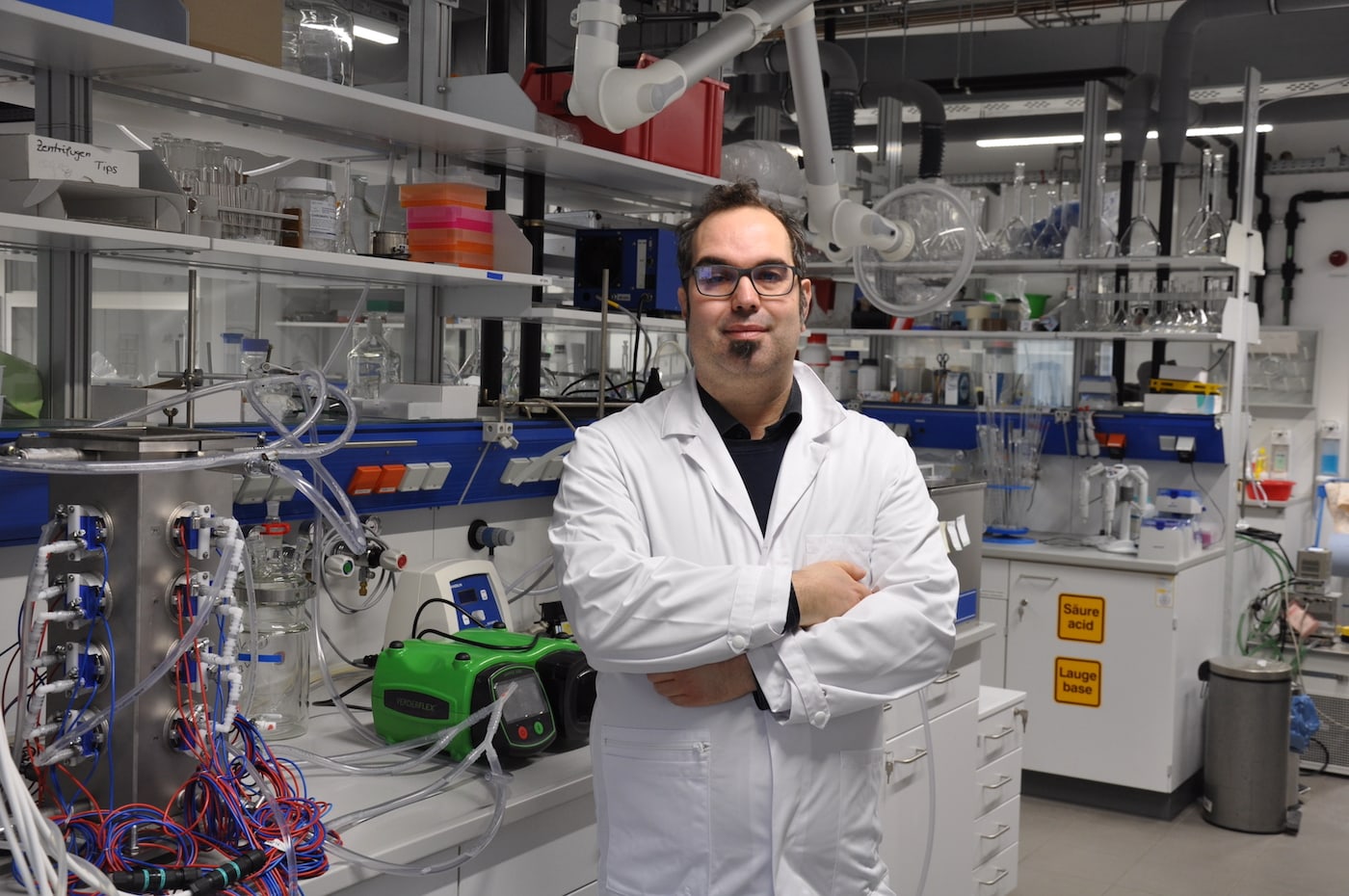Research for clean water
A fingerprint of our life
“My interest has always been in combining research on the environment with economy. In short:
“We want to develop technologies that are applicable and enable the transfer from the scientific lab to application. The technologies should be economical and protect the environment at the same time. Our research focus is on pollutants in the water.”
In particular, we are researching micro-pollutants, for example pharmaceutical residues, pesticides or dyes. We are surrounded by chemicals in our everyday lives. What we find in the air, in the water, in our environment, is a fingerprint of our life. But the effects of this are in many cases not even clear.”
Foresight instead of short-sightedness
“We want to take water management to a completely new level. We want to measure substances in water and analyse them. We want to develop concepts on how to predict the degradability of pollutants in water and how to remove them more efficiently and effectively. We don’t want to start looking for solutions only when a new substance is already in use, but we want to develop predictive models to know today which process can be used to break down a new substance and how much it will cost. Even for substances that will be used in 50 or 100 years, we already have a solution then.”
From basic research to application
“At the University of Jena, we do our basic research. We develop methods to remove micro-pollutants from water or to measure them, because these substances are usually only present in very low concentrations in the water. With artificial intelligence methods and machine learning, we are also developing forecasting tools to predict how long it will take to remove a substance by analysing it. Especially in this area, the network here in Jena is very good.
We work closely together with the Michael Stifel Center, who do data-driven science. They are a very important partner for us and this connection to data science is an important element in our research. I am also working at the Fraunhofer Institute for Ceramic Technologies and Systems. Our research there is more application-oriented. At the IKTS, the basic processes that we developed are tested on a larger scale. We do this mainly in cooperation with companies.”
Innovative business environment
“In Thuringia we have a very high density of small and medium-sized businesses. This makes the work easier because you can make agreements and decisions quickly and you encounter a very innovative climate and partners here. That’s why it never takes long time to build up cooperation.
In our projects, we try, for example, to completely rethink industrial production in relation to the use of water. One approach is “zero liquid discharge” and means that no additional water is used in the production process. The water needed is purified in the internal cycle and then reused. These companies have no more waste water then and thus do not pollute the environment.”
Thematic range and interdisciplinarity
“I am not a typical basic researcher, but I am driven by the motivation to see my research results in application. I want to see the social benefit of our research.”
“What fascinates me about our research topic is the interdisciplinarity: it has economic, technological and social aspects, and we have to bring together all of these. So, for example, we have to develop new technologies that are accepted by the people. Some technologies protect the environment, but they are sometimes more expensive.”
“Interdisciplinarity is what makes research so exciting: talking to other people, understanding other languages and approaches, translating them into your own research, to then come up with new ideas and develop new products together.”
Sharing enthusiasm for research
“In my opinion, the opportunities for young scientists are very good here at the University of Jena. We closely involve doctoral students and even undergraduates in our research projects. We have a large, lively team here, a very open culture and are always in close exchange with each other. In teaching, I give an insight into our current research topics already in the first lecture. It is important to me to show the students, why one should study our subject and what the open questions are that need to be solved in the future.”
“What drives us is to make the world a little bit better with our research, and that’s what most students want too. We think that we can help many people with new technologies.”
Open doors to research
“We are engaged in STEM education, the Children’s University (Kinderuniversität), the Long Night of Science, and we are also active in the Public Climate School. We want to communicate our topics to the broader society.”
“Therefore, outreach is not only a necessity for us, but we live it. We are always happy to positively motivate other people.”
